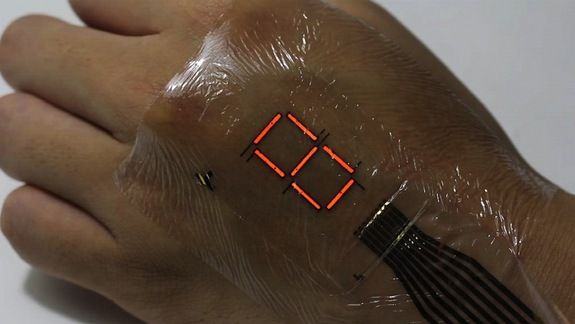The e-skin displays utilizes polymer light emitting diodes [PLED] and organic photodetectors [OPD]. Earlier similar thin displays were developed but they weren’t durable to experience in air for about few hours. The team behind this invention used a protective film that contains silicon oxy nitride and parylene [passivation layer] in order to protect display from air and water vapor. In future, the researchers aim to develop a display that could be directly lamented into body organs to make it easier to monitor blood oxygen levels throughout and after the surgery. The data could be shown by changing the intensity or the colors of the PLED’s. The authentication of this concept is linked electrodes for power and solely shows seven segment digital displays and color indicators. It is expected that in future, the display could be able to charge itself by using the body heat or flexible batteries. Also, Samsung is said to be working on a smart contact lens which could be used instead of smart glasses by projecting images straight into the eye via its small display and camera.
Δ



